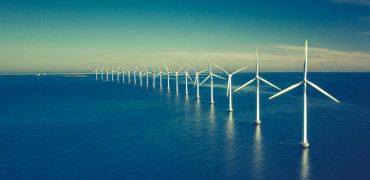In 2022, millions of people will be worse off due to growing inflation and additional taxes, collectively coined "the cost-of-living crisis." Fuel poverty is rife. Food bank usage is on the rise. Something must be done. Housing Association Magazine’s Joe Bradbury investigates:
This month's headlines have been dominated by the cost-of-living problem, with new statistics from the Office for National Statistics (ONS) revealing that inflation surged to 5.4% in November.
Inflation is a measure of how much prices rise, and the current rate of 5.4% is the highest since 1992. This implies that the cost of basic products like groceries has grown rapidly, while salaries have failed to keep up.
In addition, rising energy costs and a planned increase in national insurance in April are expected to severely strain household finances.
The divide between the rich and poor is at its all-time highest, and people are dying because they cannot feed their families and heat their homes.
Driving pressures
The following are some of the variables that are causing the present price increase:
- High demand for oil and gas is driving up energy prices around the world, putting pressure on energy providers and, as a result, their customers.
- Government assistance provided during the pandemic, including reduced VAT rates in the hospitality industry, is coming to an end.
- There are staffing shortages in a variety of industries, including hospitality and transportation. This is partially because of the pandemic, but it is also exacerbated by Brexit, as many foreign employees have left the nation.
- Due to supply chain interruptions, some commodities are in short supply.
All of these reasons have contributed to an increase in the UK's inflation rate, which is a measure of how quickly prices rise.
Escalating energy bills
The global demand for oil and gas has been driving up prices for some time, resulting in an energy crisis. As a result of this, energy has become more expensive for suppliers and, as a result, more expensive for consumers, with the additional costs being passed on to the general public.
Millions of people have already seen their bills rise; although there is presently a price ceiling on how much extra energy firms may charge. However, that price cap will grow dramatically in April, allowing suppliers to raise prices for consumers on default rates and prepayment metres.
Because wholesale gas costs are so high, the cap is projected to climb by about 50%, implying that the typical household gas and electricity bill could soar from £1,277 to £2,000 per year starting in April.
Those on low-cost fixed-rate contracts may find themselves in a worse situation as these contracts expire in the coming weeks. According to data from the website TheEnergyShop, at least 226 of these contracts will expire before March. Normally, customers on fixed-rate contracts may shop around for a better deal, but due to the rising cost of wholesale gas, such deals will be few and far between.
Excess winter deaths
According to the ONS, an estimated 63,000 excess winter deaths occurred in England and Wales in winter 2020 to 2021, 6.1 times higher than winter 2019 to 2020.
Cold weather can cause high blood pressure and a weaker immune system, putting older adults at a higher risk of getting respiratory and cardiovascular disease, as well as other seasonal ailments. According to Public Health England, over one-fifth (22%) of winter deaths are directly related to cold housing.
Sadly, as more and more people are feeling the squeeze this year, being forced to choose either heating or eating, we can only expect this figure to rise unless the cost-of-living crisis is addressed.
Eat or heat?
The situation is critical. Across most of England, there has been an increase in the use of food banks and a rise in family disputes requiring mediation, with various district councils (which represent cities, towns, and metropolitan areas across England) reporting an increase in food bank use in the last year alone.
According to Resolution Foundation research, the number of UK households struggling to pay their energy bills is likely to triple in April when the new energy price cap takes effect.
In summary
Something isn’t right. Two years into the Covid-19 pandemic and the U.K. billionaire class has actually swelled, Forbes’ latest examination of global billionaire net worth has revealed. UK billionaires are collectively £47bn richer than they were in 2020.
As of early March 2021, there are 56 U.K. billionaires, up from 45 the previous year. Facebook is doing better than ever. Amazon is doing better than ever. Google is doing better than ever… even MacDonald’s is doing better than ever.
The divide between the rich and poor is at its all-time highest, and people are dying because they cannot feed their families and heat their homes.
For many of us, the year 2022 sounds futuristic, doesn’t it? Yet all this is far from progress.
Joe Bradbury is digital editor of Housing Association magazine



